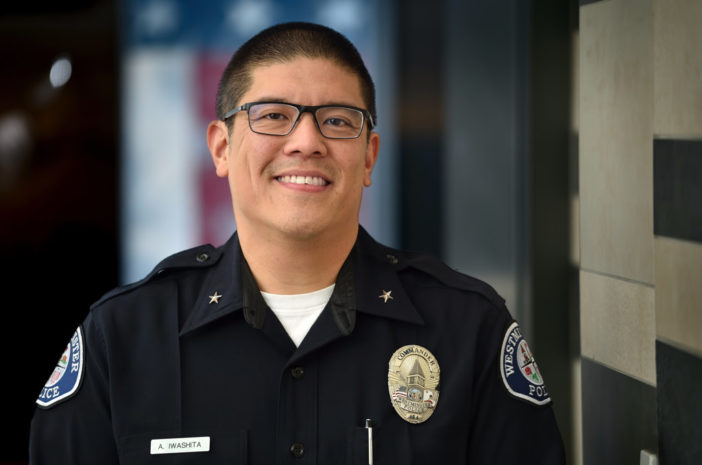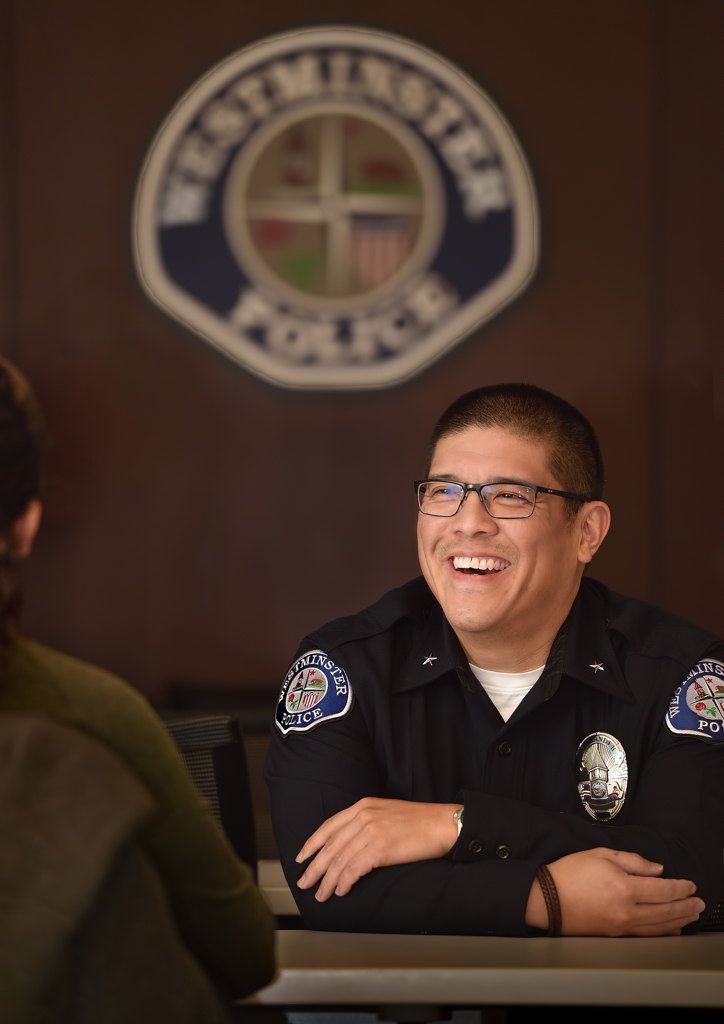Over his 21 years working in law enforcement at the Westminster PD and four years before that working as an EMT, Commander Alan Iwashita has seen more than his fair share of tragedy.
He’s also learned something about those working in law enforcement that can present challenges to dealing with traumatic incidents from a psychological perspective.
“We are a tough nut to crack,” said Iwashita, who was recently promoted to his position of commander from a sergeant supervising the Crimes Against Persons Unit. “We’re taught from day one in the academy, you don’t show emotion. … We’re trained to hide our emotions and keep them bottled up.”
But it’s actually the opposite that needs to happen. And becoming a supportive ear that law enforcement officers can talk to has become a big part of Iwashita’s work at the WPD – especially since he became part of the agency’s Trauma Support Team, which officers emotional support to both city and agency employees. He’s been part of the team for 19 years and team supervisor for eight.
“That is what got me interested really in the psychology field,” said Iwashita.
So interested, in fact, that he is working toward completing his practicum hours for a master’s degree in Marriage and Family Therapy and Professional Clinical Counseling through Brandman University. He’s thinking about the future: He wants to help support law enforcement professionals suffering from PTSD and trauma when he retires from police work himself.
His first contact with the agency’s Trauma Support Team was early on in his career at the agency after a person lit himself on fire in front of the local courthouse.
Tom Richard, founding member of the team, spoke with him about the traumatic incident. Richard, who retired as a sergeant from the agency and began working with those in law enforcement in need of emotional support, was an inspiration for Iwashita’s own future plans in psychology.
“He played a large role in that aspect of my career,” Iwashita said.
Tragically, Richard later committed suicide himself, Iwashita said.
Studies and news reports have pointed out in recent years a higher risk of suicide for those in law enforcement. One national analysis found “significantly increased risk for suicide among detectives/criminal investigators/police and corrections officers.”
For Iwashita, it all links back for the need law enforcement officers have of finding healthy ways to deal with traumatic incidents – and the role agencies and cities have of providing the resources, like the Trauma Support Team, to meet that great need.
He said that overall he sees positive movement for helping those with PTSD. He said that several states have enacted legislation acknowledging cumulative PTSD as being work-related and that the law enforcement community in general is becoming more educated on the topic. And Orange County is ahead of the curve in this regard, he said.
“Department heads across the county are recognizing the importance of helping our officers,” he said. “There’s been a huge shift.”
On his end, Iwashita will continue working with those he can support at the agency and helping all those in law enforcement understand that they are allowed to be human.
“We will respond like a human,” he said. “Learning to be vulnerable and admit that we need help at times is difficult.”
Iwashita recalled his own incident of PTSD resulting from an incident during his time as an EMT involving an individual who had burned in a car in front of him.
“When I started working here … I had problems of all things in handling non-injury traffic collisions,” he said. “My heart would start racing. I felt almost panicked.”
He eventually realized it was a stress response from the slight burning smell emitted when air bags deploy – it triggered a physical reaction in his body.
“It would transport me back psychologically into that event,” he said.
Once he figured out the trigger, it helped him manage his stress response better. This is the kind of help he tries to offer others in his field.
“I’ve been there,” he said.
 Behind the Badge
Behind the Badge




